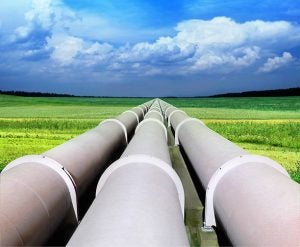New Jersey BPU must help natural gas utilities comply with state’s Global Warming Response Act
 By Ted Kelly
By Ted Kelly
The need to replace South Jersey’s leaking and leak-prone pipelines while planning to move New Jersey’s energy system away from fossil fuels became major news today when the Board of Public Utilities approved a settlement for the utility to address leaks in the gas system. South Jersey Gas is now one of the first utilities in the U.S. to commit to developing a plan to transition away from polluting energy sources and protect communities at high risk of methane pollution.
South Jersey Gas, state consumer advocates and regulators agreed on a way for the utility to use a data-informed approach to detect and repair or replace the biggest leaks and most at-risk pipelines in its jurisdiction. At the same time, South Jersey Gas will submit a plan, called the Climate Oriented Business Plan, which will outline how its business will evolve to meet federal and state decarbonization requirements in the long-term. This includes the selection of investments that comply with New Jersey’s Global Warming Response Act, which requires the state reduce its greenhouse gas emissions to 80% by 2050 with an interim goal of 50% by 2030.
Now it is up to the BPU to move forward and formally direct all gas utilities in the state to begin planning for compliance with federal, state, and local requirements to decarbonize the energy system. The BPU should also direct gas utilities to pilot innovative approaches to reducing gas system emissions, including targeted clean heat programs and non-pipeline alternatives that have the potential to replace aging natural gas infrastructure with new clean energy technologies, such as neighborhood geothermal. Meeting state environmental goals will require a substantial reduction in the use of natural gas. Because new pipeline often has the potential useful life of 30 years or more, natural gas utilities must make a plan that will guide decisions to replace or install pipeline to ensure that the actual need for the pipeline justifies its costs.
NJBPU must help natural gas utilities comply with state’s Global Warming Response Act Share on XMethane, the primary component of natural gas, is a potent greenhouse gas 80 times as damaging to the atmosphere as carbon dioxide. According to the EPA, leaks from gas pipelines were responsible for 21 million metric tons of CO2-equivalent emissions of methane in 2020. Methane leaks can also create serious safety risks. Recent peer-reviewed research has shown that neighborhoods with more people of color and lower household income often have higher levels of gas leaks. To address the safety and environmental harms caused by these leaks, it is crucial that natural gas utilities use the best available technology to detect leaks and repair and replace leaking or leak-prone pipeline.
Under the new settlement, South Jersey Gas will replace approximately 250 miles of leak-prone pipe over the next five years. The utility will conduct advanced leak detection surveys of more than 1000 miles of targeted pipe during the first year of the program and will use the resulting leak data for prioritization, so that the most polluting and most dangerous leaks are addressed first. South Jersey Gas will also address any disproportionate level of leaks detected in overburdened communities and will conduct additional advanced leak detection surveys for more of its system during the remaining four years of the program.
South Jersey Gas will join Elizabethtown and PSE&G in using modern, vehicle-based advanced leak detection technology. This, plus data analytics technology, will allow these gas utilities to identify and quantify methane leaks in their system with greater speed and accuracy than traditional survey methods.
Advanced leak detection technology and data analytics will help South Jersey find and measure methane leaks so that replacement of leak-prone pipe can be prioritized to reduce emissions faster to give the most vulnerable communities in the region the service and clean air they deserve.










